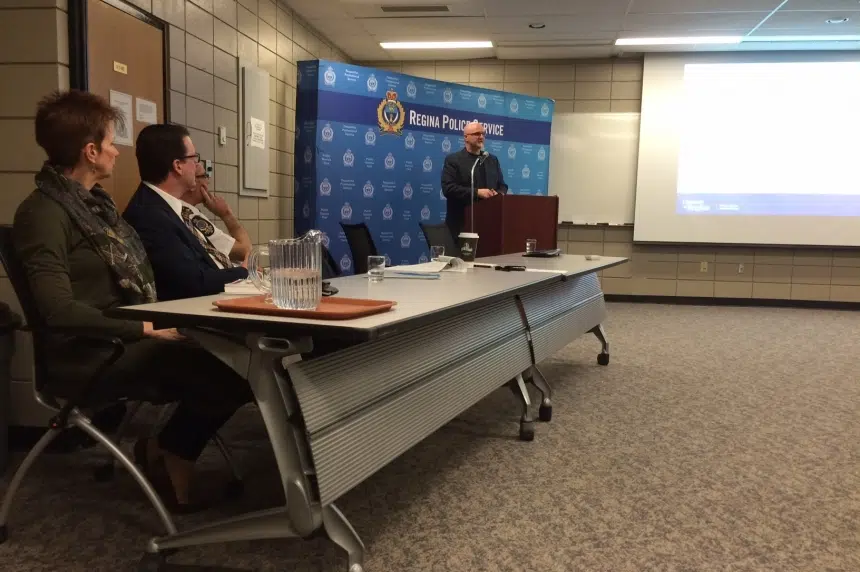The public appears to be quite happy with the work that is being done by Regina police.
The findings are being released from a telephone survey conducted by the University of Regina in September 2015, which randomly asked 462 people around the city what their perceptions of police were. The survey is done every two years.
“The public is very, very positive towards the police service,” concluded Mayor Michael Fougere based on the results.
Some of the key findings are:
- Over four-fifths (80.8%) of the survey respondents ranked the overall quality of service provided by the RPS as very good to excellent.
- Almost four-fifths (79.4%) of respondents reported being highly or very satisfied with the overall level of service provided by the RPS.
- Over four-fifths (81.2%) of respondents somewhat or strongly agreed that the RPS was an organization with integrity and honesty, and 80.4% said the RPS demonstrates professionalism in their work.
- Over three-quarters (77.2%) of respondents somewhat or strongly agreed that the RPS is sensitive to the needs of their ethnic group.
- Nine in ten respondents (90.1%) somewhat or strongly agreed having confidence in calling 911 in emergency situations.
The numbers in this survey in terms of satisfaction and support for police have been increasing since 2005, which was the first time this kind of data was gathered.
“We are continuously looking to improve,” said RPS Chief Troy Hagen.
To that point, he understands it’s likely there will always be some element of distrust or negativity among residents.
“If you are victimized by crime you have a level of dissatisfaction. Quite frankly, you’re not going to be happy.”
Respondents were chosen based on three regions of the city: north, central and south. The majority were white. Only a small fraction identified as First Nation, and the survey revealed that demographic is less likely to trust police.
“That’s not a surprise. We know that,” Hagen said. “We have work to do with respect to enhancing relationships … that’s just one area where we’re looking to make improvements.”
While the perception keeps getting more positive for police, when asked whether the sample was truly reflective of the city as a whole, the chief deferred to the researchers at the U of R who carried out the survey.
“I don’t specialize in surveys and statistical validity around surveys and that’s why we hire experts,” he responded.
Regarding how the service of police can be improved upon, the report recommends greater police visibility, hiring more officers, more police patrolling in high crime areas, more enforcement of laws, better response times, and faster investigations.











